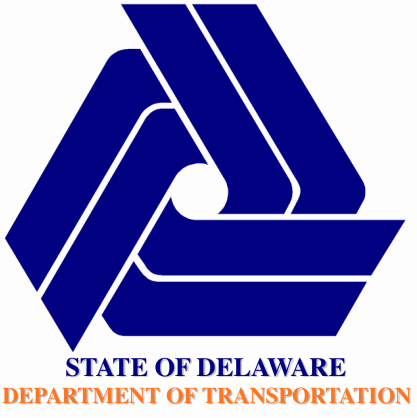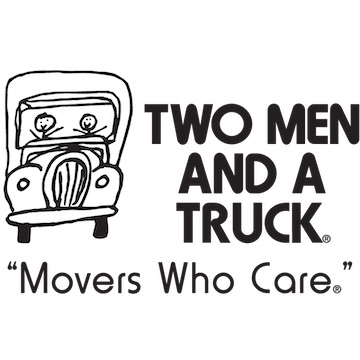Authorize. Program. Spend. (A Very Short Guide to Transportation Funding for Cycling Projects)

“All professions are conspiracies against the laity.” – George Bernard Shaw
George Bernard Shaw had a way of tartly describing the world around us in ways that encouraged people to look critically at things we usually take for granted. Shaw probably did not really believe that doctors and lawyers and engineers actually get together in a room somewhere and deliberately conspire to make their professions as opaque as possible to outsiders. But, as Shaw wittily satirized, the layer upon layer of accreted jargon can sometimes reach such a ridiculous extent that it seems almost impossible to believe a deliberate conspiracy is not involved. Take this little bit of juicy legalese:
“Borrower covenants that Borrower is lawfully seised of the estate hereby conveyed and has the right to grant and convey the Property and that the Property is unencumbered, except of the encumbrances of record. Borrower warrants and will defend generally the title to the Property against all claims and demands, subject to any encumbrances of record.”
C’mon, really? This sounds like some medieval translation from Latin. But it’s not. It’s a recent American legal document.
Just like the professions, over the years government employees have developed their own procedures and jargon. But while this may help them do their jobs efficiently, the unfortunate side effect is to make our government less transparent, less understandable and, therefore, less accountable.
 Transportation agencies are no less susceptible to the lack-of-transparency issue than any other part of government. To his credit, one of DelDOT Secretary Shailen Bhatt‘s first initiatives after he was appointed in 2011 was “TEAM DelDOT“, where “TEAM” was an acronym for “Transparent – Efficient – Accountable – Measured”. But even Secretary Bhatt might admit that more can be done.
Transportation agencies are no less susceptible to the lack-of-transparency issue than any other part of government. To his credit, one of DelDOT Secretary Shailen Bhatt‘s first initiatives after he was appointed in 2011 was “TEAM DelDOT“, where “TEAM” was an acronym for “Transparent – Efficient – Accountable – Measured”. But even Secretary Bhatt might admit that more can be done.
In fact, more can be – and needs to be – done. A lot more. That’s where Bike Delaware (and similar public interest groups) come in. We have, for example, published a series of short articles on government transportation jargon (e.g. “CMAQ“, “rescission“) as well as a guide to the mysterious acronyms (Advocacy Acronyms – a reference guide for the rest of us) that cyclists may encounter.
The single most important part of government decisionmaking around transportation (and also the part where public input is simultaneously most critical and most absent) is funding. And yet very few people – even people who work inside government and in and around transportation – understand the transportation funding process. The basics (and that’s all I’m going to talk about here), however, are very simple. Remember this acronym: “APS“. And then remember these three words:
- Authorize
- Program
- Spend
Authorize
Authorizing funding is the job of our elected legislators and our Governor. With the limited amount of government resources available, we rely on our elected representatives to make sure that these resources are deployed in the fashion that will most benefit Delawareans, and that will give us the greatest return on investment. This is the first (and therefore the most important) part of the transportation funding process. It is also the most political and the part where input from the public is most important and most effective. It is almost inconceivable that our representatives can make optimal authorization decisions without robust input from their constituents about our priorities. They need to hear from us.
Bike Delaware has published dozens of articles on the transportation funding authorization process. I link to two here:
- Getting and Leveraging Public Funds: Five Lessons from Delaware
- 1 DAY TO GO: Millions For Walking And Bicycling In Delaware Are On The Line
Program
The next step in the funding process is to take the spending authority given by elected leadership and turn it into a spending plan, or program. This spending program describes when and where and in what steps authorized funds will be spent. The program is called, variously (depending on what room you are in, what month it is and who you are talking to) the “Capital Transportation Plan” (CTP) or the “Transportation Improvement Program” (TIP). The TIP is put together by managers, planners and engineers at DelDOT in consultation with Delaware’s Metropolitan Planning Organizations (WILMAPCO and the Dover-Kent MPO).
The programming stage is less political than the authorization stage. In theory, it is supposed to be done by government employees using objective decisionmaking processes. Public input is possible through the Metropolitan Planning Organizations and through a state commission called the Council on Transportation.
Spend
A plan to spend is just that: a plan.
The TIP is a multi-year plan. Just because the TIP says the state is going to spend so-and-so number of dollars on something two, three, four or even five years in the future doesn’t mean that it necessarily will. The TIP is a piece of paper. It’s a snapshot of the Department’s intentions at a given moment, not a binding contract. It is subject to constant revision as circumstances change.
Of all the numbers in the TIP, the most important are the ones in the first year. Those funding numbers represent the part of the plan that the Department intends to execute on first. They can still change, but they are less likely to change than the numbers in the “out years”.
There, that’s it. If you have managed to get to the end of this article, you are already a mini-expert on the transportation funding process. Check out the related articles below to learn more.

James Wilson is the executive director of Bike Delaware.
RELATED:
• Politics: What cyclists should know
• “State Authorized Funding for Bicycling Improvements” Tops 2013 Vote
• “There are two favorite words on my list. One is my wife’s name, and the other is CMAQ.”
• Government Gibberish, or, In Praise of Bureaucrats
• Advocacy Acronyms – a reference guide for the rest of us
• Reason #9: Because to be effective we have to be organized





